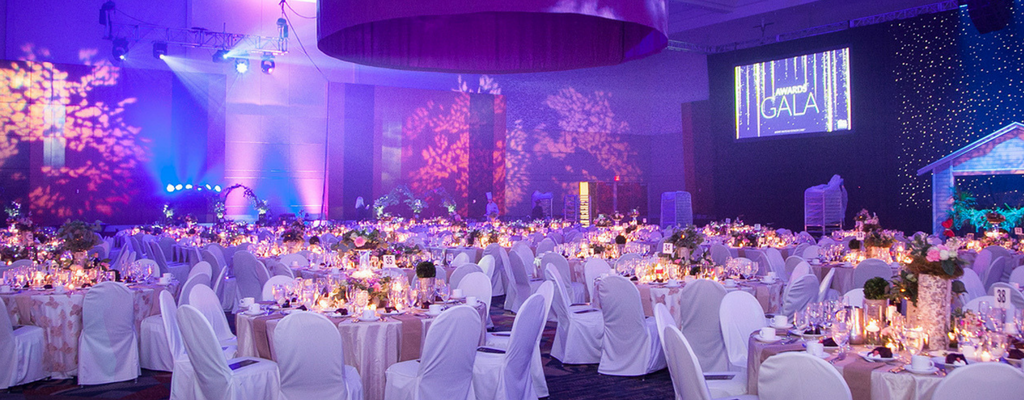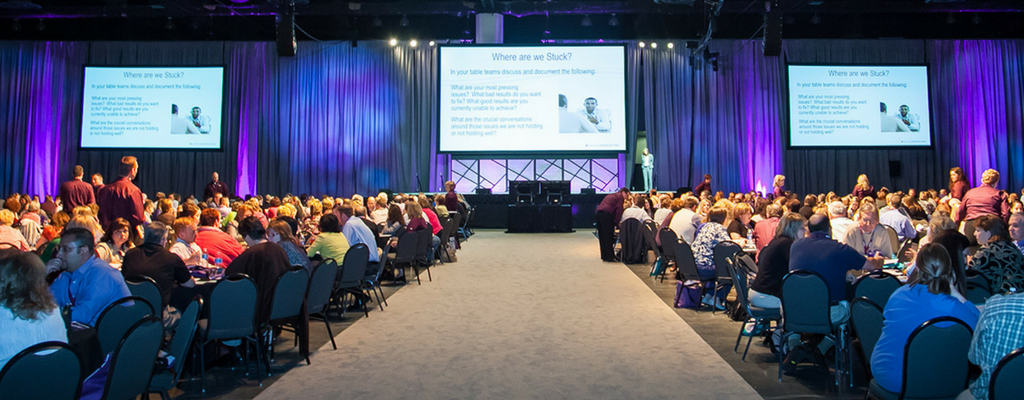 Most event planners will tell you they love their job. It’s different every day, they get to meet interesting people, and they get to use their creativity in a fun way.
Most event planners will tell you they love their job. It’s different every day, they get to meet interesting people, and they get to use their creativity in a fun way.
Something they will also tell you however, is that the job is much different than most people realize. Event planning isn’t simply traveling around and enjoying an extended vacation, there are many tasks and details that go into making an event come to life, that attendees don’t see.
It’s worth researching everything the job entails before attempting to jump in with both feet. Upon closer look, people often find that event planning is not the job they assumed it would be, and this list of harsh truths is only a fraction of an event planner’s life.
While there are many positive aspects and benefits to the industry, it’s not a fantasy job. It takes hard work and dedication to be successful as an event planner.
- Traveling Isn’t That Great
 Many people may say that their dream job would be one that allows them to travel the world for free, going to exciting and glamorous events on every continent. Surprisingly enough, many people believe that this is the life of an event planner. However, this is very untrue.
Many people may say that their dream job would be one that allows them to travel the world for free, going to exciting and glamorous events on every continent. Surprisingly enough, many people believe that this is the life of an event planner. However, this is very untrue.
While some travel is required, it’s only a small portion of an event planner’s job.
More often than not, an event planner is confined to a ballroom or event space managing an event. They then attend the events as a person in the background, managing the entire event to ensure that everything runs smoothly.
- Details Are An Essential
 Event planners must be natural perfectionists because they’re constantly thinking about details. They should be able to read between the lines of contracts, pick up on verbal and nonverbal cues when negotiating, and predict any problems that could arise during an event.
Event planners must be natural perfectionists because they’re constantly thinking about details. They should be able to read between the lines of contracts, pick up on verbal and nonverbal cues when negotiating, and predict any problems that could arise during an event.
They should also be able to include details within the event that impress guests and clients, including guests’ travel arraignments, sleeping accommodations, arrivals to the event, seating charts, decorations, entertainment, etc. They’ll diligently plan the event to ensure that there is never a moment when guests are bored and that the entire event runs smoothly.
- Discretion Is a MUST
 Some event planners have the opportunity to meet celebrities; a secret perk of the profession. However, it’s vital that event planners keep the secrets of celebrities quiet and be discrete about their business with them. This means no bragging, no gossiping, and most likely no pictures or autographs. Even when working with corporations or hosts of smaller events, event planners may be trusted with information that needs to be kept quiet. Planners must be able to control themselves in these situations so that clients know that they can be trusted.
Some event planners have the opportunity to meet celebrities; a secret perk of the profession. However, it’s vital that event planners keep the secrets of celebrities quiet and be discrete about their business with them. This means no bragging, no gossiping, and most likely no pictures or autographs. Even when working with corporations or hosts of smaller events, event planners may be trusted with information that needs to be kept quiet. Planners must be able to control themselves in these situations so that clients know that they can be trusted.
- Event Planners Must Always Impress
 Every event that an event planner plans and executes is expected to be better than the last. Once a planners sets a certain standard, that becomes the benchmark for all future events. Every event must impress guests and clients, which can prove to be difficult on low budgets or tight deadlines. Clients expect an impressive event within their budgets, which sometimes is not enough for the event that the client wants. Critical thinking is often required to figure out a way to meet expectations and keep the client happy.
Every event that an event planner plans and executes is expected to be better than the last. Once a planners sets a certain standard, that becomes the benchmark for all future events. Every event must impress guests and clients, which can prove to be difficult on low budgets or tight deadlines. Clients expect an impressive event within their budgets, which sometimes is not enough for the event that the client wants. Critical thinking is often required to figure out a way to meet expectations and keep the client happy.
Planners must also continue impressing attendees with every new event. This can seem difficult at times, as there are only so many event themes to choose from. Finding ways to get through an event planner’s “writer’s block” is essential.
- Innovation is Important
 Innovation, in any industry, is hard; and innovation in event planning is no exception. Event planners must constantly keep up with trends, stay ahead of the competition, and find new and creative ways to impress clients and guests. This requires continuous research, education, and a natural talent for creativity.
Innovation, in any industry, is hard; and innovation in event planning is no exception. Event planners must constantly keep up with trends, stay ahead of the competition, and find new and creative ways to impress clients and guests. This requires continuous research, education, and a natural talent for creativity.
Some event planners attend conferences and conventions to learn more about their industry and about the newest features to include in events. Event planners must sacrifice their money and time in order to stay ahead of the competition. An event planner will always look for new ways to make events “pop” and be different from other events that guests attend. An event that has been attended over and over never impresses anyone.
- Event Planners are on call 24/7
 Event planners are never really finished working. During an event, planners will almost always be on call 24/7, as there is always an event going on and there will always be problems for them to troubleshoot. They also know that working weekends and holidays is a regular occurance, so say goodbye to the 9-5 scheduled shifts. Most clients respect night time hours, but others do not. Event planners may get calls in the middle of the night from clients wanting more information or help with their event.
Event planners are never really finished working. During an event, planners will almost always be on call 24/7, as there is always an event going on and there will always be problems for them to troubleshoot. They also know that working weekends and holidays is a regular occurance, so say goodbye to the 9-5 scheduled shifts. Most clients respect night time hours, but others do not. Event planners may get calls in the middle of the night from clients wanting more information or help with their event.
Think farming an event out to a freelancer or another employee is easy? Think again. Planners that subcontract events often find themselves dropping their own plans to help at an event when a problem arises. Planners can’t predict every problem that could occur, and must be available to solve them when they come up.
- Event Planners Appreciate the Competition
 Event planners have an unusual appreciation for detail and the hard work that is put into a successful event. When they attend an event that they did not plan, they never take for granted the details that were put into making the event happen. They see the small details at events that others may not see. They appreciate hard work and effort that is put into anything planned. They see events differently than non-planners do. This leaves them with a stronger appreciation and more respect for fellow event planners.
Event planners have an unusual appreciation for detail and the hard work that is put into a successful event. When they attend an event that they did not plan, they never take for granted the details that were put into making the event happen. They see the small details at events that others may not see. They appreciate hard work and effort that is put into anything planned. They see events differently than non-planners do. This leaves them with a stronger appreciation and more respect for fellow event planners.
While the industry is as competitive as any other industry, event planners have a great amount of respect for each other because they know the time, effort, and dedication that goes into creating every event.
- Confidence is Key
 Event planners must have confidence in themselves and their abilities. They spend their days talking to others, negotiating with vendors and venues, and trying to impress prospective clients. They must put themselves out there, sometimes in uncomfortable situations to have awkward conversations. In order to survive being an event planner, they must have confidence and not fear the word “no.”
Event planners must have confidence in themselves and their abilities. They spend their days talking to others, negotiating with vendors and venues, and trying to impress prospective clients. They must put themselves out there, sometimes in uncomfortable situations to have awkward conversations. In order to survive being an event planner, they must have confidence and not fear the word “no.”
Events often force planners to ask for special requests on behalf of their clients and sometimes “no” is not an acceptable answer. Event planners must know how to get to “yes” in almost every situation, and if a “yes” is not possible, figure out a solution that makes the client happy.
- Event Planners Must Master the Art of Blending
 Event planners must perfect the art of being seen enough for their clients to know they’re there, but blending into the background enough for guests to not be distracted by them. It’s a balancing act of remaining available for the event while creating the illusion that the event is running seamlessly on its own. Guests should never see a frazzled event planner frantically running around; only a planner that knows exactly what is supposed to happen.
Event planners must perfect the art of being seen enough for their clients to know they’re there, but blending into the background enough for guests to not be distracted by them. It’s a balancing act of remaining available for the event while creating the illusion that the event is running seamlessly on its own. Guests should never see a frazzled event planner frantically running around; only a planner that knows exactly what is supposed to happen.
- Scapegoats are Common
 Event planners know that they will likely be the ones who will be blamed when things go wrong. Things happen that are out of anyone’s control; things that could not be prevented or predicted. Event planners can plan until there is nothing left to plan, but there is always a chance of hiccups. No matter the problem that arises, event planners know that they will most likely be the ones that have to fix it.
Event planners know that they will likely be the ones who will be blamed when things go wrong. Things happen that are out of anyone’s control; things that could not be prevented or predicted. Event planners can plan until there is nothing left to plan, but there is always a chance of hiccups. No matter the problem that arises, event planners know that they will most likely be the ones that have to fix it.
Most event planners get used to this blame and let it roll of their shoulders, but some may take it personally. It can be difficult to accept blame when it’s not due, but a good event planner understands it’s nothing personal, sucks it up, then solves the problem.
Conclusion
Being an event planner is a great profession that provides wonderful opportunities and creative freedom, but it takes a specific type of person to be successful in this industry. An event planner is confident, creative, and knowledgeable, and must stay up-to-date on the latest trends and innovations.
Event planners work tirelessly to provide the most impressive events for their clients and stay within a specified budget, which is not always the easiest task. With hard work, patience, and attention to detail, an event planner can excel greatly. However, those who are interested in the industry should do their research before making the plunge into the career.
